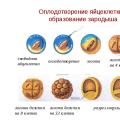V English language Subject-verb agreement is very important. Without knowing its principles, you will not be able to construct even a simple sentence. Let's find out how to correctly coordinate the predicate with the subject in English.
If the subject in a sentence consists of two or more nouns (pronouns) connected by a union and, you should use the verb in plural. Example:
- He and his colleagues are in the cinema.
However, if two or more nouns (pronouns) that make up the subject are connected in a sentence by conjunctions or or nor, the verb referring to them must be used in the singular. Examples:
- My mother or sister is going to cook a dinner.
If the compound subject consists of a noun (pronoun) in the plural and singular, and they are joined together by unions or or nor, the verb of the predicate should be coordinated with the part of the subject that is in the sentence close to the verb.
Examples:
- Neither the coach nor the players know the score.
- Neither the players nor the coachknows the score.
Doesn't is a shortened form of does not and is used with the subject in the singular. Don't is an abbreviation do not and suitable for plural subjects. An exception to this rule are 1st and 2nd person pronouns. I and you as a subject. They should be used with don't. Examples:
- She doesn't play football.
- They don't like coffee.
- I don't like cooking.
- You don't play chess.
The verb should agree with the subject, and not with another noun (pronoun) that may be between them in the sentence. Examples:
- One of the chickens was ill.
- The woman with all her children stays at the bus stop.
- The people who trust the president are many.
In English, pronouns each, each one, either, neither, everyone, everybody, anybody, anyone, nobody, someone, somebody and no one possess the singular and require the verb in the singular, respectively. Examples:

- Everyone likes apples.
- Neither is correct.
- Nobody in the team wants to give up.
- each of these apricots on the table is ripe.
Nouns such as civics, mathematics, dollars, news, measles require the use of the verb-predicate in the singular. Examples:
Note: noun dollars in the meaning of the amount of money is used with the verb in the singular. If we are talking about the currency as a whole, then the verb will be in the plural.- in my mind, mathematics is the most important science.
- Yesterday the news was at seven.
- one hundred dollars is a lot of money.
- dollars are convertible throughout the world.
Nouns such as scissors, shears, tweezers, trousers require plural form verb (since they all consist of two parts). Examples:
- These trousers are style.
- Your scissors are keen.
Expressions such as such as with, together with, including, accompanied by, in addition to, as well do not change the number of the subject, as well as the verb-predicate. Examples:

- My brother accompanied by his friends, is playing football.
- all cats, including small kittens, have strong claws.
In sentences that begin with turnovers there is or there are, the subject follows after the verb-predicate, however, they still agree. Examples:
- There are many students.
- There is a student.
Collective nouns, meaning more than one person, however, have a singular form and are used with a verb in the singular. Examples:
- Today the team demonstrates outstanding performance.
- His family was pretty big.
- The crew is ready for departure.
The topic of the article is very important, because the rules for agreeing the subject and the predicate are applicable in almost every sentence.
Now, having replenished your knowledge base, you can better prepare, for example, for, and you will feel much more confident when speaking in English with a native speaker.
The predicate in English (The predicate) denotes the action or state of objects, persons, actions that are expressed. This member of the sentence answers the following questions: What is done with the subject? What does the subject do? What is it? What is it like? Consider the features of the formation of the predicate, its main forms, and also provide examples for better understanding of the topic.
The predicate is divided into several specific types. It happens:
- simple,
- composite.
If we talk about compound predicates, then they are divided into two types:
- compound noun,
- compound verb.
The first is formed in the following way => linking verb + nominal part.
Formation of the second => modal verb + infinitive
This is only the basic scheme, but it is important to remember that in a compound nominal predicate, the linking verb is expressed to be in different forms, but ... the words to look, to seem, to turn, to get, to become, etc. can act as a link. As for the nominal part, it can be - gerund, participle, numeral, infinitive, pronoun, adverb, adjective, noun.
In a compound verb predicate, must, may, can, ought, etc. are used as modal verbs. Moreover, note that a construction that consists of some verbs + an infinitive or a gerund can also serve as a compound verbal predicate.
Simple predicates
They are expressed by verbs in a personal form, and they can be in any mood, voice and tense:
She wears a uniform => She wears a uniform.
He looks at the window => He looks out the window.
Mary is cooking her favorite cookies => Mary is making her favorite homemade cookies.
Note! The predicate in English can be either one word or consist of several words. In the latter case, we will use auxiliary and semantic verbs. Predicates can be expressed by verbs in any voice and modified forms (the table clearly shows this):
On a note! Simple predicates also include those that are expressed phrasal verbs and stable combinations, which in general form one holistic concept, in other words - a phraseological expression =>
She pays no attention to his remarks => She doesn't pay attention to his remarks.
The grandparents take care of their little grandchildren => Grandparents take care of their little grandchildren.
Compound nominal predicate
As we have already said, it consists of a linking verb and a nominal part. Speaking of the linking verb, in most cases it will be the verb to be, which can be in any person and tense => is/are/were/was/am…
On a note! unlike the Russian language, English verb to be is not omitted in the present tense.
As for the nominal part, it serves to express the main semantic meaning of the predicate. At the same time, the nominal part characterizes the subject => what it is, what it is, what it is, or who.
On a note! Under the nominal part of speech, we mean any part of speech, except for interjection and conjunction. In addition, the nominal part can be expressed by a subordinate clause.
Sentences in which the nominal part is represented =>
- pronoun
The cake is yours=> The cake is yours.
It is him=> This is it.
- noun
He was a gardener=> He was a gardener.
She is the brightest student=> She is the smartest student.
- Pronoun or noun with a preposition
My parents are strongly against it=> My parents are categorically against it.
Her grandmother was in despair=> Her grandmother was in despair.
- numeral
She is twenty-five=> She is 25 years old.
This young girl is seventeen=> This young girl is 17 years old.
- adjective
the sky is blue=> The sky is blue.
The paper is yellow=> The paper is yellow.
The cake is delicious=> The cake is amazingly delicious.
- adverb
My close friends are far away=> My close friends are very far away.
theory was over so we began to practice => The theory is over, so we started to practice.
- infinitive
Her task was to help them to cope with everything => Her job was to help them cope with everything.
His ideology is to help everybody who is in need => his ideology is to help everyone who is in need.
- Communion
The store is closed=> The shop is closed.
The eggs are boiled=> Eggs are boiled.
- gerund
His most sincere wish was painting=> Himself cherished desire was drawing.
Her greatest wish is cooking=> Her biggest desire is to cook.
Compound verb predicate
The scheme for the formation of such a predicate => a combination of modal verb + infinitive.
Modal verbs that are used in compound verb predicates:
- Need - need, need
- Shall / should - expresses a need, an order,
- Must - necessary, necessary
- May - to be able, to be able,
- Can - be able, able,
- Ought (to) - should, should
- Will / would - expresses intention, desire, promise,
- To have (to) - must (strong form),
- To be (to) - must (in the form of an order).
After modal verbs goes semantic verb, which is expressed by the infinitive without the particle to:
- I can write an article => I can write an article.
- You must start learning English => You must start learning English.
- She may not come today => She may not come today.
But!
- They are to start that project => They are to start that project.
- I have to visit my relatives => I have to visit my relatives.
As you can see, in the last two examples we use the to particle. But this is not an exception to the rule, but a feature of the formation of a modal verb, which in its composition has a particle to (have to, be to, ought to).
A few more striking examples of compound verb predicates in sentences:
- You should have followed their advice => You should have followed their advice.
- She may have seen that movie earlier => She may have seen the movie earlier.
- A lot of things are to be done because of this statement => A lot of things need to be done because of this statement.
Pay attention to the verbs that are most often used with compound verb predicates:
to start, to begin, to go on, to stop, to continue, to finish.
A few examples:
- He began to do everything as you said => He began to do everything as you said.
- I have finished translating this => I have finished translating this.
- She stopped explaining everything => She stopped explaining everything.
Summing up
The predicate in English plays an important role in the construction of a sentence. Having learned how to use them correctly in different forms, tenses and faces, you will learn how to speak correctly, without mistakes and blunders. At the same time, pay attention to the agreement of the subject and predicate in English.
From the examples above, it is clear with which prepositions, particles and connectives the main members of the sentence are used and in what form, number and person they are best used. But… English grammar is rich in exceptions, which determines the interest of its study. By studying the subject and verb together, you increase the chances of a better understanding of the topic. Grammar is here to help too!
Views: 315
Here is a table with information about the predicate in English.
Predicate(Table 13) in an English declarative sentence usually stands after the subject and happens:
I. Simple; it is a personal verb form:
1) indicative mood
I read a book. - I am reading a book.
I am reading a book (now). - I'm reading a book now.
I have been reading it (for two days). I have been reading it (for 2 days already).
I have read it. - I read it.
I was given a book. - They gave me a book.
2) subjunctive mood
I should do this work if I had time. I would do this job if I had time.
II. Composite, which consists of a linking verb(link verb) and nominal part(predicative). Verbs are used as a linking verb: be - to be, feel - to feel, keep - to keep, continue, become, grow, get, turn - to become, seem, appear - to seem, look, etc.
As a nominal part are used:
1. Noun
Is not a research worker. - He is a researcher.
Has not become a research worker. - He became a research assistant.
2. Adjective
My house is new. - My house is new.
3. Communions(I, II)
It was well done. - It was well done.
He seemed tired, bul kept working. He looked tired, but continued to work.
4. Pronouns:
1) personal(im. m.) That was he. - That was him.
2) possessive(II form) The paper is his. This is his article.
3) index It was that. - That was it.
4) uncertain It is too much for me. - It's too much for me.
5) relative and connective
The question is who will go there. The question is who will go there.
6) interrogative e What has she become? – What has she become?
5. Numerals:
1) quantitative
They were five. - There were five of them.
2) ordinal
She was the first to do it. “She was the first to do it.
6. Infinitive or Gerund
Our aim is to master English. Our goal is to master English.
Our aim is mastering English. Our goal is to master the English language.
7. Adverb She was out. - She went out.
8. Noun or pronoun with a preposition
When the pendulum is at rest, it shows the direction of gravity. – When the pendulum is at rest, it shows the direction of gravity.
It is for him. - This is for him.
9. Adverbial predicate sentence
The question is if (whether) he will come. The question is whether he will come.
III. Compound, consisting of a modal verb and an infinitive
I can do it. – I can do it.
Is not to go there. “He has to go there.
Translation: verb; the verb to be (become) in combination with a noun, adjective, participle, pronoun, numeral; verbs to become, start, be able, want and others in combination with an infinitive, a subordinate predicate clause.
The main members of the proposal ( main parts of the sentence), both in Russian and in English are subject and predicate. This is the second article devoted to another main member of the sentence - the predicate ( the Predicate). You can find more detailed information about the subject in the article "", posted on the blog in the "" section. If you have already studied it, we turn to the study of the predicate in English. This main member of the sentence denotes the action, state, as well as the quality of the object or person expressed by the subject of this sentence. As we can see, the subject and predicate are completely related and dependent on each other, and, as a rule, when parsing the structure of a sentence, they should be studied together.
Two types of predicate in English
In English, there are two types of predicate: verb ( the Verbal Predicate) and nominal ( the Nominal Predicate). The verbal predicate determines the action and is expressed by the verb in a personal form (time, and can be any).
He arrived early in the morning.
We are working at the moment.
This woman studies English.
My mother and I have been living here for some years already.
John will move to another city.
All the presented sentences contain a simple verbal predicate ( the Simple verbal predicate). But this predicate can also be complex ( the Compound Verbal Predicate). We can talk about complex modal ( the Modal Verbal Predicate) and a complex phase predicate ( the Aspect Verbal Predicate). The first consists of and the infinitive of the verb without to(exceptions include modal verbs ought to, to be to, to have to):
She can run fast.
We have to stop working.
My mother ought to be more polite to other people.
Jackie should join their group.
Tourists must respect traditions of foreign countries.
phase predicate in English- This is a predicate, consisting of certain verbs that denote the beginning, continuation, end of the action, and the infinitive or gerund. Here are some phase verbs: to start, to begin(both start) to go on(continue), to finish, to stop, to cease(all three - finish, stop).
His friend began to study foreign languages.
She started crying.
We went on strolling down the street.
A stranger finished introducing himself.
Now let's move on to the second type of predicate in English, namely, to the nominal. This predicate denotes the state, quality, characteristics of an object or person, that is, it cannot denote an action. The nominal predicate always consists of a verb - a bunch ( link verb) and nominal part ( the predictive). There are a lot of linking verbs, we will list only the main ones:
Verbs of life:
- be(be)
- look(to look like)
- feel(feel)
- taste(to taste)
- sound(sound, appear)
- smell(smell)
Becoming verbs:
- grow(grow)
- get(reach, become)
- become(become)
- turn(become)
- prove(turn out)
Preservation of quality verbs:
- remain(stay)
- keep(to be saved)
- continue(continue)
Verbs of "appearance":
- seem(seem)
- appear(appear, appear)
By using linking verbs in speech, we make our speech more intense and emotional. For instance:
He is upset. - He's sad.
He looks, feels, seems upset. He looks sad, he feels sad, he seems sad.
As for the nominal part of the predicate in English, it can be expressed by the name
is what is said about: what (subject) does? what is done with it? what is it? The predicate is simple and compound, which in turn is nominal and verbal.
Simple predicate in English
A simple predicate consists of , person, number, pledge, mood.
It can be a one-word predicate, for example, a verb in:
I bought a ticket - I bought a ticket.
We like your voice - We like your voice.
But “simple” does not mean one word. A simple predicate can be expressed by a verb in any tense:
I will talk about it to your parents. “I will talk about this with your parents.
The tower has been demolished. The tower has been demolished.
Compound nominal predicate in English
A compound predicate can be nominal and verbal.

Types of predicate in English
The compound nominal predicate is built according to the scheme:
Linking verb + nominal part
The nominal part denotes who or what the subject is or becomes. In the role of the nominal part are usually used, or
I will give examples with the linking verb to be:
- to be + noun
Alex is a lawyer. Alex is a lawyer.
She was my friend. - She was my friend.
- to be + adjective
I am not sure. - I'm not sure.
Elephants are smart. - Elephants are smart.
- to be + participle
The gate is locked. - The gates are locked.
My radio is broken.- My radio is broken.
- to be + pronoun
This wallet is not yours. This wallet is not yours.
That bag is mine.- This bag is mine.
Compound verbal predicate in English
Compound verb predicateconsists of two elements:
Verb + infinitive\gerund
The verb in the first part is either modal, or one of those verbs that by themselves do not give the full meaning.
- Modal verb+ infinitive
I can swim- I can swim.
You must help your friend. You must help your friend.
- Verb + infinitive\gerund
After a verb that does not give the full meaning, an infinitive or is possible. In most cases, the infinitive will be with the particle to. There are many such "incomplete" verbs, and they are often found in speech.




